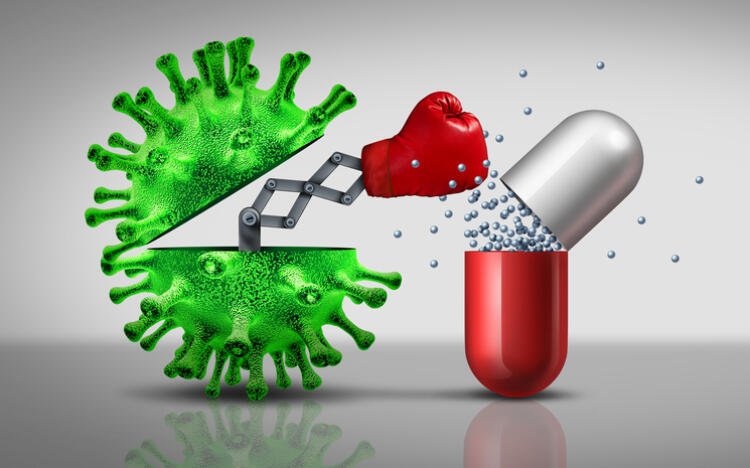Antibiotic resistance is a growing global health concern that undermines the effectiveness of medications used to treat bacterial infections. When bacteria evolve to resist the effects of antibiotics, it can lead to longer illnesses, increased medical costs, and a higher risk of complications. Understanding how to prevent antibiotic resistance is crucial for maintaining the efficacy of these vital drugs. This article outlines key strategies to prevent antibiotic resistance and ensure antibiotics remain effective for future generations.

Understanding Antibiotic Resistance
Antibiotic resistance occurs when bacteria develop the ability to withstand the effects of medications designed to kill or inhibit them. This resistance arises through various mechanisms, including genetic mutations and the acquisition of resistance genes from other bacteria.
How Bacteria Become Resistant
Bacteria can become resistant to antibiotics through several pathways. For instance, genetic mutations can alter the target sites of antibiotics, rendering them ineffective. Additionally, bacteria can acquire resistance genes from other bacteria through processes like horizontal gene transfer.
The Impact of Antibiotic Resistance
The impact of antibiotic resistance is profound, leading to longer and more severe infections, increased healthcare costs, and limited treatment options. Addressing this issue requires a multifaceted approach, focusing on prevention and responsible use of antibiotics.
Strategies to Prevent Antibiotic Resistance
Preventing antibiotic resistance involves a combination of prudent antibiotic use, infection control measures, and public awareness. Implementing these strategies can help curb the spread of resistant bacteria and preserve the effectiveness of antibiotics.
Use Antibiotics Responsibly
One of the most effective ways to prevent antibiotic resistance is to use antibiotics responsibly. This means only taking antibiotics when prescribed by a healthcare professional and completing the full course of treatment as directed.
Avoid Self-Medicating
Avoid using antibiotics without a prescription. Self-medicating or using leftover antibiotics from previous illnesses can contribute to resistance. Always consult a healthcare provider for an accurate diagnosis and appropriate treatment.
Complete the Full Course
If prescribed antibiotics, complete the entire course even if symptoms improve before finishing the medication. Stopping treatment early can leave some bacteria alive, allowing them to develop resistance.
Practice Good Infection Control
Infection control practices play a vital role in preventing the spread of antibiotic-resistant bacteria. Proper hygiene and infection prevention can reduce the need for antibiotics and minimize the risk of resistance.
Wash Hands Regularly
Regular handwashing with soap and water is one of the simplest and most effective ways to prevent the spread of infections. Hand hygiene helps remove bacteria and viruses, reducing the likelihood of needing antibiotics.
Vaccinate Against Preventable Diseases
Vaccination helps prevent infections that might otherwise require antibiotic treatment. Staying up-to-date with recommended vaccines can reduce the incidence of diseases and decrease the overall use of antibiotics.
Promote Antibiotic Stewardship
Antibiotic stewardship programs aim to optimize the use of antibiotics and ensure they are prescribed only when necessary. These programs involve healthcare professionals working together to implement best practices for antibiotic prescribing and monitoring.
Implementing Stewardship Programs
Healthcare facilities and providers should implement antibiotic stewardship programs to promote appropriate prescribing practices. These programs include guidelines for selecting the right antibiotic, dosing, and duration of treatment.
Educating Healthcare Providers
Educating healthcare providers about the principles of antibiotic stewardship is crucial. Training programs and continuing education help ensure that providers are aware of the latest guidelines and best practices for antibiotic use.
Raise Public Awareness
Raising public awareness about antibiotic resistance is essential for encouraging responsible use and understanding the importance of prevention strategies.
Informing the Public
Educational campaigns and resources can inform the public about the risks of antibiotic resistance and the importance of using antibiotics responsibly. Community outreach programs can also promote proper hand hygiene and vaccination.
Encouraging Responsible Behavior
Encouraging patients to follow healthcare providers’ instructions and to avoid pressuring them for antibiotics when not needed is vital. Empowering individuals to take an active role in their health can contribute to reducing resistance.
Conclusion
In conclusion, preventing antibiotic resistance requires a comprehensive approach involving responsible antibiotic use, effective infection control, antibiotic stewardship, and public education. By implementing these strategies, we can help preserve the effectiveness of antibiotics and ensure they continue to provide essential treatment for bacterial infections. Adopting these practices not only protects individual health but also contributes to global efforts to combat antibiotic resistance.




